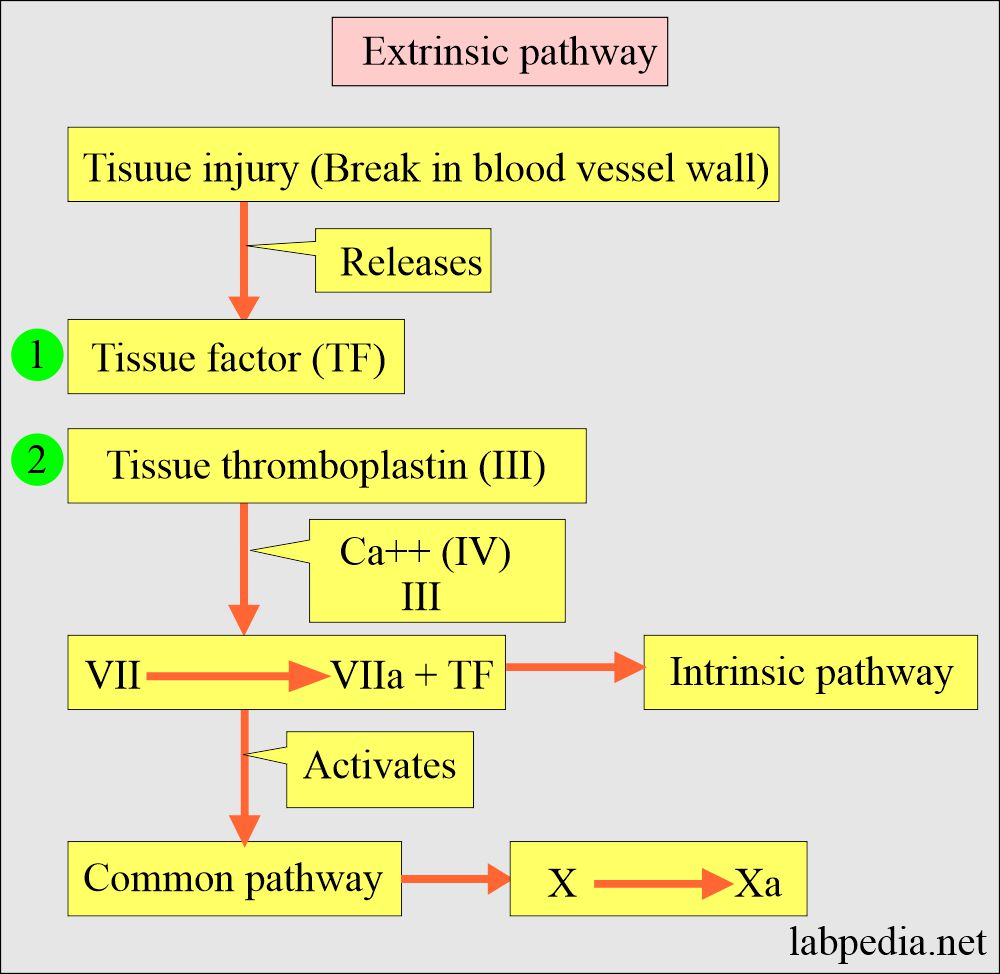I still remember the first time I saw someone bleeding. I was about five years old, and I was playing with my friends in the backyard when one of them fell down and scraped his knee. I was so scared! I didn’t know what to do, so I just stood there and watched as the blood streamed down his leg.

Image: www.chegg.com
Now, I know that bleeding is a normal part of life. But it’s also important to know how to stop bleeding, especially if it’s severe. Coagulation is the process by which blood clots, and it’s essential for preventing excessive bleeding.
Conditions That Impair Coagulation
There are a number of conditions that can impair coagulation. These conditions can be inherited or acquired, and they can range from mild to severe.
Inherited Conditions
There are a number of inherited conditions that can impair coagulation. These conditions are caused by mutations in the genes that are responsible for producing clotting factors. Clotting factors are proteins that are essential for the clotting process.
The most common inherited bleeding disorder is hemophilia. Hemophilia is a condition that prevents the blood from clotting properly. This can lead to excessive bleeding, even from minor injuries.
Acquired Conditions
There are also a number of acquired conditions that can impair coagulation. These conditions can be caused by a variety of factors, including:
- Liver disease
- Kidney disease
- Certain medications
- Cancer
Vitamin K deficiency
Vitamin K is an essential nutrient that is required for the production of clotting factors. Vitamin K deficiency can lead to impaired coagulation, which can increase the risk of bleeding.

Image: www.elevate.in
Treatment for Impaired Coagulation
The treatment for impaired coagulation depends on the underlying cause. In some cases, treatment may not be necessary. However, in other cases, treatment may be necessary to prevent excessive bleeding.
The most common treatment for impaired coagulation is clotting factor replacement therapy. This therapy involves administering clotting factors intravenously. Clotting factor replacement therapy can be used to treat both inherited and acquired bleeding disorders.
Tips for Preventing Bleeding
There are a number of things you can do to prevent bleeding if you have impaired coagulation. These steps include:
- Avoid contact sports
- Use caution when using sharp objects
- Get regular dental checkups
- Avoid taking aspirin or other blood thinners
- Eat a healthy diet
FAQs
Q: What is the difference between a bleeding disorder and a clotting disorder?
A: A bleeding disorder is a condition that makes it difficult for blood to clot. A clotting disorder is a condition that makes the blood clot too easily.
Q: What are the symptoms of impaired coagulation?
A: The symptoms of impaired coagulation include easy bruising, frequent nosebleeds, and heavy menstrual bleeding.
Q: How is impaired coagulation diagnosed?
A: Impair coagulation is diagnosed with a blood test that measures the clotting time.
Q: What is the treatment for impaired coagulation?
A: The treatment for impaired coagulation depends on the underlying cause.
Q: Can impaired coagulation be prevented?
A: Some cases of impaired coagulation can be prevented. For example, vitamin K deficiency can be prevented by eating a healthy diet.
All Of The Following Conditions Impair Coagulation Except
Conclusion
Impair coagulation is a condition that can make it difficult for blood to clot. This can lead to excessive bleeding, even from minor injuries. There are a number of conditions that can impair coagulation, including inherited conditions, acquired conditions, and vitamin K deficiency.
The treatment for impair coagulation depends on the underlying cause. In some cases, treatment may not be necessary. However, in other cases, treatment may be necessary to prevent excessive bleeding.
If you have impaired coagulation, it is important to follow your doctor’s instructions for preventing bleeding. You should also avoid contact sports, use caution when using sharp objects, get regular dental checkups, and avoid taking aspirin or other blood thinners.
Are you interested in getting tested for coagulating and getting a report on whether or not your coagulation is okay?